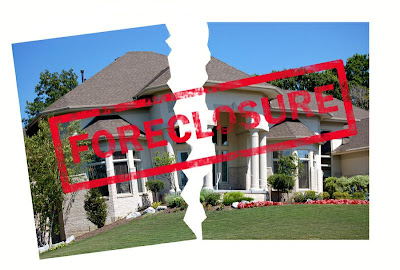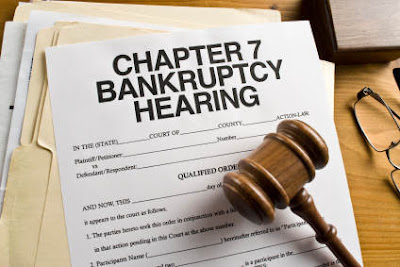What is the Stand Your Ground law? Read about it from this HG.org article.
The Trayvon Martin case in Florida has received national attention on the Stand Your Ground law and now many states that have the Stand Your Ground law in place are looking at their current legislation regarding the Stand Your Ground law. However, the Stand Your Ground law has a rational basis and dates years back. This is a discussion on investigating self defense cases under the Stand Your Ground statutes.
Many states have some form of "Castle Doctrine" or "Stand Your Ground" law in place. These states are Alabama, Alaska, Arizona, California, Florida, Georgia, Illinois, Indiana, Iowa, Kansas, Kentucky, Louisiana, Maine, Michigan, Mississippi, Missouri, Montana, New Hampshire, North Carolina, North Dakota, Ohio, Oklahoma, Pennsylvania, Rhode Island, South Carolina, South Dakota, Tennessee, Texas, Utah, West Virginia, Wisconsin and Wyoming have adopted Castle Doctrine statutes, and other states (Iowa, Virginia, and Washington) have considered "Stand Your Ground" laws of their own.
While critics have rationalized the "Stand Your Ground" law as "shoot first" that is not the case. Many experienced criminal attorneys do not understand the "Stand Your Ground" law and many of their clients have plead guilty when the case could have been justified under Stand Your Ground. Self-defense and Stand Your Ground is nothing new. The Supreme Court of the United States ruled in Beard v. U.S. (158 U.S. 550 (1895)) that a man who was "on his premises" when he came under attack and "...did not provoke the assault, and had at the time reasonable grounds to believe, and in good faith believed, that the deceased intended to take his life, or do him great bodily harm...was not obliged to retreat, nor to consider whether he could safely retreat, but was entitled to stand his ground." Justice Oliver Wendell Holmes, Jr. declared in Brown v. United States (1921) (256 U.S. 335, 343 (16 May 1921)), a case that upheld the "no duty to retreat" maxim, that "detached reflection cannot be demanded in the presence of an uplifted knife". More than half of the states in the United States have adopted the Castle doctrine, stating that a person has no duty to retreat when their home is attacked. Some states go a step further, removing the duty of retreat from other locations. "Stand Your Ground", "Line In The Sand" or "No Duty To Retreat" laws thus state that a person has no duty or other requirement to abandon a place in which he has a right to be, or to give up ground to an assailant. Under such laws, there is no duty to retreat from anywhere the defender may legally be. Other restrictions may still exist; such as when in public, a person must be carrying firearms in a legal manner, whether concealed or openly.
The Stand Your Ground law is not an automatic defense. The claim of self-defense under Stand Your Ground must meet the rules of evidence to have some basis. The threat must be imminent and it must be immediate. Our job as professional investigators is to gather facts surrounding the case, seek video surveillance where the act took place, locate witnesses (if any), take statements, obtain video and photographs of where the act has taken place, collect the background of the defendant that is claiming self-defense as well as a background of the aggressor. If the evidence matches the claim of self-defense under Stand Your Ground, chances are the prosecutor will consider the act justifiable under the law. In the Tayvon Martin case as reported in the media, the evidence did not match the statement given by George Zimmerman, the defendant that claimed self-defense under Stand Your Ground.
It's well settled that law enforcement is not constitutionally obligated to protect any individual citizen unless a "special relationship" exists. Warren v. District of Columbia (444 A.2d. 1, D.C. Ct. of Ap. 1981). So, the logic behind self-defense and Stand Your Ground is that you have a right to defend yourself whenever you are in a permissible location, not just your residence or property. It is also well settled that an aggressor cannot claim self-defense under Stand Your Ground. It's important to note that once the facts and evidence are gathered on a claim of self-defense and Stand Your Ground and a defendant, or potential defendant satisfies the prerequisites that he/she was not the aggressor, was in a legal permissible place, and the evidence and facts substantiate a valid claim of self-defense under Stand Your Ground, then a very heavy burden is placed on the prosecutor to prove that it was not self-defense under Stand Your Ground. Many prosecutors, as well as defense attorneys, will try and convince their clients that they should have walked away or they cannot claim self-defense except on your own property and that is certainly not correct. The statutes are very clear and nearly all statutes have a "no duty to retreat" clause meaning a jury cannot consider that a defendant could have retreated from an encounter against an aggressor and the statues further the self-defense by stating "any place that is permissible" meaning that the defendant was not trespassing, etc.
Still, statutes go further as in the self-defense of others. If a bystander is witnessing someone being attacked then that witness is allowed to use reasonable force, including deadly, if he or she reasonably believes that the person being attacked is in danger of serious bodily harm or death. While the Stand Your Ground statutes are very clear and date back under United States Federal Case law to 1895, attorneys and legal scholars still find it difficult to interpret self-defense and Stand Your Ground statutes. For instance, one such law uses the terminology "A person who is not engaged in unlawful activity and who is in a place where he or she has a right to be shall have no duty to retreat before using deadly force as provided for in this Section, and may stand his or her ground and meet force with force." Some attorneys and prosecutors have interpreted this section to mean that "equal" force can be used and not deadly force. That is a misinterpretation because it is in the same clause as "no duty to retreat." The legislative history behind such a clause states "force with force" meaning "no duty to retreat" or "Stand Your Ground." It would be illogical to expect an individual to defend themselves with a knife (especially if that person only has a gun) and the aggressor has a knife. The proper interpretation is if you fear serious bodily injury or death, you may use reasonable force, including deadly force to defend yourself. It does not matter if the aggressor has a knife or baseball bat and you have a gun. Self-defense and Stand Your Ground statutes, clearly written, not overbroad or vague, are still misinterpreted. These are complex cases that require professional investigators with a background in criminal defense and very experienced attorneys in criminal law. Most individuals that are arrested that have claimed self-defense under the Stand Your Ground statute will go through a preliminary examination and usually, at this stage, the charges are dismissed. However, some prosecutors prefer to allow a trial and a jury to decide if the defendant's actions were initiated through self-defense under Stand Your Ground. The evidence must match the facts of the case. Any discrepancy in the evidence or facts could lead to a murder or manslaughter trial. A full background of the defendant and the aggressor must be conducted first and foremost. The defendant's past must be scrutinized and examined thoroughly to determine if there is a history of violence. The same background must be conducted on the aggressor and facts must be established leading up to the incident.
While critics will verbalize that the Stand Your Ground has flaws, they will not idealize the good parts of laws like Stand Your Ground. For instance, should you allow an attacker to kill you while you are not allowed to defend yourself? Should you stand helplessly by watching your neighbor or a woman in a parking lot be assaulted while you are not allowed by law to assist? If we are to accept the critics' version that Stand Your Ground laws should be repealed, then law abiding citizens will have no recourse to protect themselves. It is not a "license to kill" but a fundamental right to defend your person, your property and if necessary, your neighbor or another person. Again, common sense dictates, and critics will not tell you that the Stand Your Ground affirmative defense is not automatic. The facts and evidence must match the incident and a full investigation must be commenced to determine if the incident is self-defense under Stand Your Ground. A good investigation will determine the facts and that is the best safeguard you can have in place to be sure that someone is not getting away with murder by using the Stand Your Ground law as a shield.
Therefore, there are safeguards in place to ensure that criminals do not kill someone in cold blood and claim self-defense under Stand Your Ground. Is it perfect? No it is not, but no law is perfect; but the Stand Your Ground statutes allow a person to justifiably defend themselves without fear of being arrested for having to defend themselves or another person. There is logic behind the Stand Your Ground law and dates back to 1895. We as citizens must have right to defend ourselves against an attacker and if Stand Your Ground laws are repealed, then we are at the mercy of an attacker.
Evan Granowitz is a California-based litigator. For more law-related updates, visit this Facebook page.


















